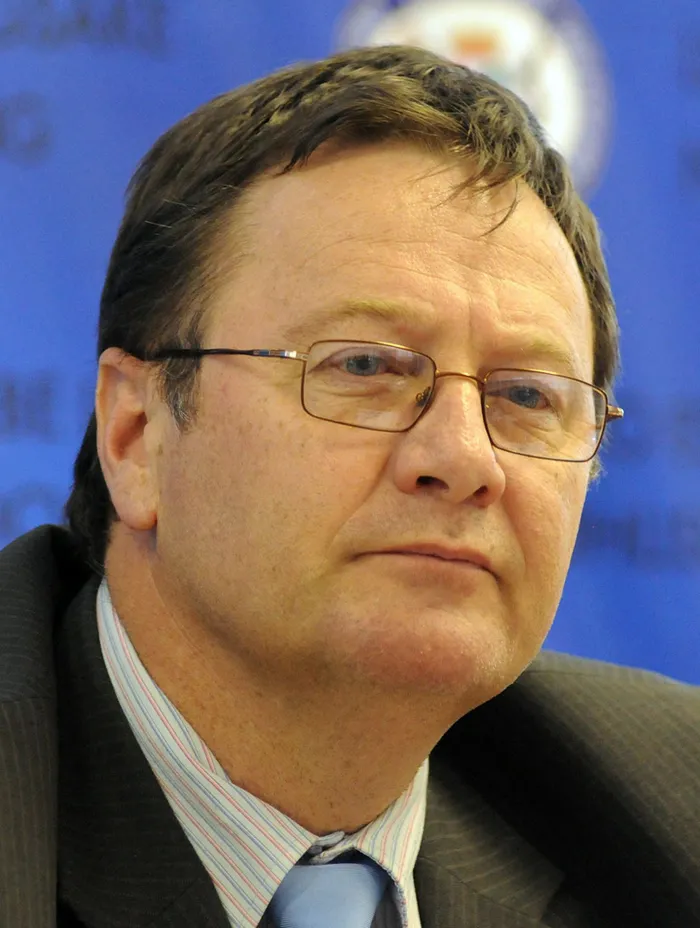‘Demarcation board should be restructured’ - Bredell

MEC for Local Government, Anton Bredell said shared agreements between municipalities could address challenges that arise from demarcation woes. Picture: File
Cape Town -- It's been more than a year since the Municipal Demarcation Board said it was going back to communities that were unhappy with the redrawing of ward boundaries in various parts of the country, including those threatening blood on the floor.
And with little to no action, communities are still unhappy about the municipalities they fall under and the service delivery that comes with it.
This caused the Western Cape’s MEC for Local Government, Anton Bredell to call for the demarcation board to be restructured – something political analyst William Gumede agrees with.
“Yes, it should be restructured ... but that doesn't mean the demarcation is going to help them. (Certain) areas have low capacity and therefore we have to plan very well and we have to talk about a model of cooperation between municipalities,” said Bredell.
Mbekweni community leader, Quincy Bongo, said the issue of demarcation was a “huge issue” plaguing the region.
Bongo said for over a decade communities in the area have seen wards moved from one municipality to another in the Cape Winelands Districts which has affected service delivery.
“It’s absolutely disastrous ... our community members are being left behind ... we’ve been fighting this since 2010, it’s a losing battle,” Bongo told Weekend Argus.
“There was a vast amount of unrest in the community over the past recent years because of demarcation issues, but our pleas are not being listened to, we’re ignored,” he said.
A year after the 2016 municipal elections the tiny community of Merweville in the Karoo raised complaints over the fact that they fell under ward 7 in the Beaufort West Municipality which is nearly 160km away.
Community members called for the ward to be restructured to allow them to fall under the Prince Albert Municipality which is 80km away.
At the time the Demarcation Board’s Aluwani Ramagadza said communities or municipal council could file an application for the board to review the demarcation.
Now years later, the community is still in the same predicament.
The DA’s former ward 7 councillor and ex Beaufort West mayor, Japie van der Linde said although the municipality attempted to make headway to improve service delivery, it was still a challenge.
“The people of Merweville are still in the same position, it is very difficult for them. Since 2017, the municipality has seen through some projects including the construction of a sports hall, bulk water infrastructure but the day-to-day service delivery issues are still a concern.
“People still need to drive over 100km to Beaufort West when Prince Albert is closer. Ward 7 covers a large portion of areas in Beaufort West along with farms from there all the way to Merweville,” he said.
The Municipal Demarcation Act of 1998 requires a clear process to be undertaken in demarcating and re-demarcating boundaries.
According to a study conducted by the South African Local Government Association (Salga), municipal demarcations must improve the economic, social, administrative and financial sustainability of municipalities, bringing together people in geographical units so that they can largely live, work, shop and play in the same municipal area.
Salga spokesperson Sivuyile Mbambato acknowledged the fact that the demarcation of certain wards was a headache.
“A number of the municipalities are also losing population, possibly due to migration and/or increasing urbanisation. This has meant that many smaller municipalities, and particularly those without a rates base, have become even more financially unviable.
"Municipalities have become very large, and average population densities are becoming much lower by far. Council representation and the number of wards generally reduces. Most incorporated areas have a history of having been poorly governed,“ said Mbambato.
The board received 1 465 objections during the previous delimitation process, with most of the objections coming from Mpumalanga, KwaZulu-Natal and Eastern Cape, among others.
The Dullah Omar Institute recently held a webinar on demarcation issues.
During the webinar, the institute said: “Efficiency and identity arguments often appear as key justifications under-girding local boundaries.”
It added: “On the one hand, municipal boundaries set the territorial limits for the provision of local public services. For those that see municipalities as the location of service provision, the making of boundaries should be dictated by functional linkages, including financial and administrative capacity considerations.”
In the meantime, municipalities are caught between a rock and hard place as they struggle to keep the water and lights on in the face of escalating debt and inefficiencies.
The cash-strapped municipalities of Beaufort West, Cederberg, Kannaland and Matzikama in the Western Cape owes Eskom nearly R256 million, according to Bredell.
“There has been a long standing debate on demarcation with lower capacity municipalities such as Cederberg and Matzikama. You can change demarcation, but if there is no big town to boost (municipal income) they will always struggle.
“What we must do is move on shared services agreements where districts help out and this is possible with our District Model. Memorandum of Understanding for shares services will mean one good engineer that can work across three municipalities each week (because) another problem we sit with is getting skilled workers.
“We have a couple of success stories in the Central Karoo with the shared services model. But we need to bring mayors together for discussions around twinning. This way big municipalities like Saldanha Bay and Swartland can support lower capacity ones,” he said.
Weekend Argus